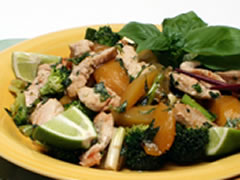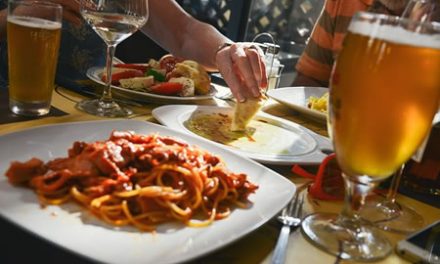Hundreds of newly available low-carb foods are actually making weight loss more difficult. Dieters are falling into the trap of thinking that low-carb foods automatically cause pounds to drop off. In grocery stores, they try to make sense of the variety of low-carb claims on packages. Many consumers have lost track of the basics of healthy eating, like portion control and balanced food choices. What's more: Sometimes people even gain weight eating low-carb foods.
Research news about insulin may be part of the problem. Insulin is a hormone that allows blood sugar to enter cells to be used for fuel, but it can also promote energy storage, according to a widely accepted theory. Changes in insulin levels may make it easier for the body to store more fat or to lose it. Low-carb foods appear to affect insulin levels less.
But even if this theory about changing insulin levels is verified, energy balance is still the crucial factor in weight control. If you eat more calories than you burn up, your body has no choice but to store the extra as fat, regardless of whether those calories are carbohydrate, fat or protein.
People who consume more calories in food and drink than they burn up need to become more active, reduce calorie consumption, or do both. Some people have grown accustomed to large servings of grain products: double- or triple-size bowls of cereal, bagels that are equivalent to four slices of bread, pasta platters that equal anywhere from four to eight "standard" half-cup servings. For these people, cutting back on carbohydrates is a smart weight loss strategy. But any consequent weight loss will be due to reducing excessive calorie consumption, not metabolic mysteries.
Don't let food package claims deceive you. Grocery shelves are now filled with "low carb" muffins, protein bars, brownies and cheesecake. Package fronts might announce one or two grams of carb, but check the full nutrition label. For instance, a 2 gram carb protein bar could have 240 calories.
You should be aware that no legal definition exists for the term "low carb." Food companies use it at their own discretion. Food companies - not nutrition experts or government sources - have also generated terms like "net carb" or "effective carb" to promote new products.
Many of these products use sugar alcohols (including sorbitol, mannitol and xylitol) instead of sugar. Because sugar alcohols are absorbed more slowly from the digestive tract than sugar, blood sugars do rise more slowly. However, some companies subtract the grams of sugar alcohols, along with the grams of dietary fiber, from the total carbohydrate count to get "effective" or "net" carbs. But sugar alcohols still bring all their calories along, no matter how slowly they're absorbed. And it's the total number of calories that affect fat storage. Besides, too much of sugar alcohols can cause uncomfortable gas and diarrhea.
If you look at calorie balance, it's clear that some foods on popular diets - "no-no" lists make more health sense than low-carb "diet" foods. You have the potential to lose more weight with a snack of 80 calories from popcorn, grapes, apples or carrots, which are filling and supply important nutrients, than with 150 or 250 calories of low-carb diet foods. People mistakenly gobble multiple servings of low-carb products because they're called "diet food."
If you want to lose weight, remember that successful weight loss comes with eating fewer calories, not fewer carbs. Long-term habits of regular exercise and eating only to satisfy hunger will help your results come sooner and endure.
AICR, Image by Engin Akyurt (Pixabay)












